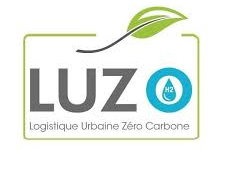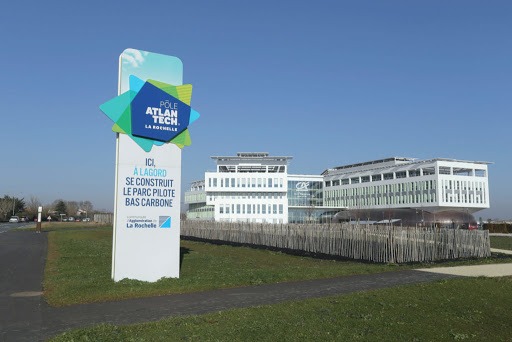
LUZO: Zero-Carbon Urban Logistics
Funding: Investments for the future programme (PIA): Highly Ambitious Innovative Regions (TIGA)
EIGSI Project Manager: Nicolas Malhéné
Duration: September 2019 – December 2022
Partners: La Rochelle (CDA)

Explanation of the project:

The La Rochelle Urban community would like to recover part of the power generated from solar PV technology at the Atlantech eco-district in the form of hydrogen to power some twenty utility vehicles and cargo bikes.
This project is part of a broader strategy being taken by the city of La Rochelle and involving its flagship programme: La Rochelle: Zero-Carbon Territory. In this area, Atlantech, a low-carbon neighbourhood, is acting as a demonstrator. The ambition is to achieve carbon neutrality by 2040. The energy pillar of the strategy entails setting in motion a circular energy process whereby self-consumption is optimised across the neighbourhood’s modules through solar PV power generation.
The aim is to work across the three strands:
- Immediate self-consumption
- Storage in batteries
- Hydrogen storage.
An initial demonstrator will enable production of hydrogen from solar PV shades. The LUZO project intends to harness this green hydrogen by setting up a “zero-carbon” urban logistics service. The green hydrogen produced will be able to power some twenty utility vehicles as well as cargo bikes. Vehicle hire, delivery and courier services are the target applications of this project.

EIGSI’s contribution:
EIGSI’s involvement in this project concerns assessing the energy savings and effectiveness of the overall system. The key to the success of this programme is the satisfaction of customers using the fleet of hydrogen-powered cars. The approach put forward for assessing the overall solution is inspired by the PRiSM framework (which stands for Projects Integrating Sustainable Methods).
PRiSM is a structured, process-based methodology. It focuses on five areas of sustainable development (People, the Planet, Prosperity, Process and Products) and provides an assessment framework for factoring in the different dimensions affected.
This assessment will bear on each sub-system of the overall proposal:
- hydrogen generation,
- hydrogen distribution,
- use through development of the supply of cargo bikes.
That said, it will not be possible for the assessment to remain local and independent since the ultimate aim is to measure the performance of a comprehensive solution characterising a complete ecosystem. Attention will therefore have to be paid to aligning the different systems making up this ecosystem. This will require identification and analysis of an overall decision model to highlight the approach for coordinating and synchronising decisions within this ecosystem, much like an overall logistics chain.
This model will particularly endeavour to ensure threefold consistency as regards: decision-making objectives, decision variables and performance indicators which will be positioned along the different strands of the sustainable development framework.